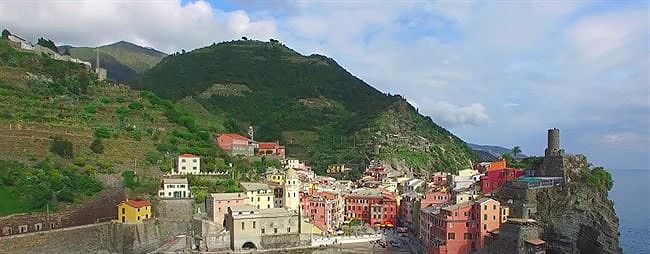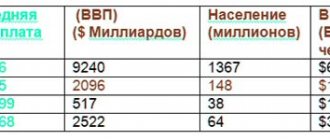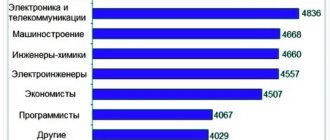Average salary in Italy by region - 2021
The difference in salaries in Italy between the North and the South is about 10% in favor of the former. The North also earns 5% more than the central part of the country. The North's higher salaries are explained by the multinational concentration of large companies with attractive offers for highly skilled profiles.
Salaries of qualified workers
The monthly averages in the tables start with the northern regions.
| Region | Salary before taxes | Salary after taxes |
| Lombardy | 2 690 € | 1 825 € |
| Trentino-Alto Adige | 2 640 € | 1 799 € |
| Emilia-Romagna | 2 630 € | 1 794 € |
| Veneto | 2 600 € | 1 779 € |
| Piedmont | 2 590 € | 1 773 € |
| Valle d'Aosta | 2 570 € | 1 763 € |
| Liguria | 2 560 € | 1 758 € |
| Friuli Venezia Giulia | 2 550 € | 1 753 € |
| Tuscany | 2 520 € | 1 737 € |
| Lazio | 2 510 € | 1 732 € |
| Marche | 2 500 € | 1 727 € |
| Umbria | 2 460 € | 1 706 € |
| Abruzzo | 2 450 € | 1 701 € |
| Sicily | 2 390 € | 1 670 € |
| Company | 2 370 € | 1 660 € |
| Molise | 2 310 € | 1 627 € |
| Sardinia | 2 300 € | 1 621 € |
| Basilicata | 2 300 € | 1 621 € |
| Apulia | 2 290 € | 1 614 € |
| Calabria | 2 230 € | 1 578 € |
Salaries of less qualified workers
| Region | Salary before taxes | Salary after taxes |
| Lombardy | 1 380 € | 1 133 € |
| Trentino-Alto Adige | 1 440 € | 1 170 € |
| Emilia-Romagna | 1 360 € | 1 121 € |
| Veneto | 1 370 € | 1 127 € |
| Piedmont | 1 370 € | 1 127 € |
| Valle d'Aosta | 1 430 € | 1 164 € |
| Liguria | 1 350 € | 1 115 € |
| Friuli Venezia Giulia | 1 340 € | 1 109 € |
| Tuscany | 1 350 € | 1 115 € |
| Lazio | 1 290 € | 1 078 € |
| Marche | 1 350 € | 1 115 € |
| Umbria | 1 210 € | 1 028 € |
| Abruzzo | 1 340 € | 1 109 € |
| Sicily | 1 210 € | 1 028 € |
| Company | 1 300 € | 1 085 € |
| Molise | 1 240 € | 1 048 € |
| Sardinia | 1 230 € | 1 041 € |
| Basilicata | 1 250 € | 1 054 € |
| Apulia | 1 290 € | 1 078 € |
| Calabria | 1 240 € | 1 048 € |
The average in Italy is about 1,710 € gross, net 1,335 € per month. Living expenses for a given income can be compared here.
Average salary in Italy
In terms of average wages, Italy is ahead of many EU countries, for example, Spain and Cyprus, but is inferior to more successful countries, including Germany and France. The annual income of one Italian worker is about 29,000 euros , that is, the average salary in Italy in 2021 is 2,415 euros per month before paying income tax, the rate of which at the national level varies from 23% to 43%.
In fact, it is quite difficult to derive average wage figures in Italy. In this regard, the country is very diverse. It is necessary to take into account the profession, industry, education, skill level, gender, age of the employee and the specific region. For example, according to the local statistical office, in the south of Italy the average income is about 1,700 euros per month (net), and in the north more than 2,200.
The annual salary in Sicily is around 21,000 euros, and in Lombardy about 32,000. In large Italian cities, where the industrial sector, tourism and financial services market are developed, wages are significantly higher than in the country as a whole. Let’s say that if you are employed in Milan for positions that require high qualifications, you can count on a net income of over 2,500 euros per month. Favorable situation in Rome and Turin.
In addition to the regional factor, the average wage of Italian workers largely depends on the profession. The gap here is colossal. If senior managers and company executives receive up to 8,500 euros per month, then ordinary workers receive 1,500–2,000. The salaries of government members even exceed 14,000 euros. Women in Italy earn 10–11% less than men. By the way, the average for the European Union is 16.3%.
SALARY IN ITALY BY PROFESSION
| PROFESSION | EURO PER MONTH |
| Financial Director | 4 400 |
| Engineer | 2 530 |
| Advocate | 2 460 |
| Doctor | 2 400 |
| Programmer | 2 200 |
| Electrician | 2 030 |
| Accountant | 2 000 |
| Dentist | 1 950 |
| Nurse | 1 890 |
| Chef | 1 850 |
| Builder | 1 400 |
| Nanny, nurse | 1 200 |
| Teacher | 1 100 |
| Salesman | 1 060 |
| Waiter | 900–800 |
Average salary in Italy by profession - 2021
By industry, the financial sector tops the ranking with a gross salary of about 2,620 euros per month. The lowest paid sectors of the economy in Italy are: services - 1,510 €, construction - 1,450 € and agriculture - 1,180 € per month.
| Professional area | Salary before taxes | Salary after taxes |
| Secretary | 1 400 € | 1 146 € |
| Manager | 3 200 € | 2 088 € |
| Programmer | 2 580 € | 1 768 € |
| Accountant | 1 400 € | 1 146 € |
| Senior accountant | 3 250 € | 2 114 € |
| Clerk | 1 350 € | 1 115 € |
| Hairdresser | 1300 € | 1 085 € |
| Engineer | 1 900 € | 1 450 € |
| Architect | 1800 € | 1 389 € |
| Turner | 2 700 € | 1 830 € |
| Electrician | 1 630 € | 1 286 € |
| Warehouse worker | 1 000 € | 892 € |
| Collector of furniture | 1 860 € | 1 426 € |
| Housemaid | 900 € | 828 € |
| Nurse | 970 € | 873 € |
| Nanny | 1 100 € | 957 € |
| Doctor | 3 000 € | 1 985 € |
| Nurse | 2 500 € | 1 727 € |
| Freelance nurse | 2 900 € | 1 934 € |
| Dental assistant | 800 € | 763 € |
| Social worker | 900 € | 828 € |
| Consultant | 1 100 € | 957 € |
| Teacher | 1 500 € | 1 207 € |
| Mini event organizer | 2 230 € | 1 578 € |
| Cook | 1 650 € | 1 298 € |
| Chef Apprentice | 1 200 € | 1 022 € |
| Sushi Master | 2 000 € | 1 511 € |
| Waiter | 1 100 € | 957 € |
| Driver | 2 100 € | 1 550 € |
| Courier | 1 300 € | 1 085 € |
| Salesman | 1 330 € | 1 103 € |
| Security guard | 1 000 € | 892 € |
Italian source: www.subito.it
Minimum salary in Italy
The Italian authorities do not legally regulate the level of the minimum wage in the country. Rates are fixed in collective agreements between employers and trade unions and depend on the specific sector of the economy. Today, about 80% of Italian workers are covered by such agreements and are protected to some extent from wage discrimination.
In addition, Article 36 of the country's Constitution indicates that wages must be proportional to the quality and quantity of work performed, and also high enough to provide a living wage for the worker and his family members. In general, the minimum wage in Italy in 2021 is not lower than 700–800 euros per month , but in fact, Italian companies offer salaries exceeding 1000 euros .
This year, with a population of about 60.5 million people, the number of officially employed people in Italy is about 22.8 million, and the unemployed are about 2.3 million. Most often, salaries are set at almost the minimum level not only in the field of unskilled labor, but also for local specialists aged 18 to 24 years. Therefore, a huge number of young Italian citizens go to work abroad.

Average salary in Rome, Italy
The average salary in Rome is currently around 1,400 euros per month. Even if this is a fairly high salary by Italian standards (given its low economic productivity), it is important to consider that Rome has a fairly high cost of living. This especially applies to rental housing. Knowing Italian is required for most jobs in Italy, but there are exceptions. Some positions in the tourism and technology sectors do not require proficiency in Italian. Learning Italian is highly recommended, as the number of English speakers in the city is lower than in most comparable European capitals.

Village in Italy sells historic houses for €1
Minimum and average salary in Italy
In January 2021, ten countries in the eastern EU had minimum wages (before taxes) below €700 per month: Bulgaria (€332), Hungary (€442), Romania (€458), Latvia (€500) ), Croatia (563 euros), Czech Republic (579 euros), Estonia (584 euros), Poland (614 euros), Slovakia (623 euros) and Lithuania (642 euros).
Average “minimum wages”
In five countries, located mainly in the south, the “minimum wage” ranges from 700 to 1100 euros. These are Greece (758 euros), Portugal (776 euros), Malta (785 euros), Slovenia (1024 euros) and Spain (1108 euros).
As for the remaining six countries located in the west and north of the EU, the minimum wage here was above 1,500 euros per month: France (1,555 euros), Germany (1,614 euros), Belgium (1,626 euros), the Netherlands (1,685 euros), Ireland (1,724 euros) and Luxembourg (2,202 euros).
Italy is divided into three large regions with different levels of economic development:
- the north is the richest part of Italy. The most important industrial enterprises are located here. The annual salary of northerners before taxes is 30,541 euros;
- a center where citizens live a little more modestly. Their average annual income reaches 28,564 euros;
- the poorest agricultural south, where the average annual salary is 26,190 euros. Residents of this part of the country earn 25% less than workers in the north.
The richest provinces of Italy are Lombardy, Emilia-Romagna, Friuli-Venezia Giulia and Trentino-Alto Adige. And Italians live most modestly in Calabria, Molise, Basilicata and Sicily. If in Lombardy workers receive about 34,000 euros, then in Sicily it is only 24,000 euros.
The Italian economy is currently in crisis. In terms of gross domestic product per capita, the country is in 32nd place. Between 2008 and 2016 there was an increase of zero. Only in 2021 there was an increase of 1.7%, and this parameter is the worst in all of Western Europe.
The economic situation in the country is worsening due to the influx of foreign citizens migrating to Italy for permanent residence. Most often, young people move to the state. As a result, local incomes are growing very slowly. Despite all these factors, Italy is a developed industrial country with an average annual salary of 30,000 euros.
Piano piano: average salary in Italy
For the study, experts formed a conditional food basket and compared the cost of products with the minimum wage. The basket consists of products such as: bread, milk, eggs, rice, cheese, meat, fruits and vegetables.
Although this list is very meager, the products it contains (in the quantities indicated) are able to satisfy the minimum nutrient requirements of an average adult.
- Milk (10 liters) – 252 ₴
- Bread (10 loaves) – 140 ₴
- Rice (1.5 kg) – 41 ₴
- Eggs (20 pcs.) – 48 ₴
- Cheese (1 kg) – 189 ₴
- Meat (6 kg) – 734 ₴
- Fruits (6 kg) – 169 ₴
- Vegetables (8 kg) — 151 ₴
The cost of such a food basket at the beginning of 2021 is UAH 1,724, which is 7.82% more than a year ago.
The Italian tax system is considered one of the most confusing in the world. Taxes are assessed on a progressive scale at the federal, regional and municipal levels. The minimum federal income tax of 23% is paid by people earning less than €15,000 per year. And wealthy citizens earning more than 75,001 euros per year need to pay 43% of their income to the treasury.
The cost of living in Italy varies from region to region. In large cities such as Milan and Turin, housing and food prices are significantly higher than in the southern regions of the country. For example, a one-room apartment in the city center can be rented for 600–1000 euros per month, and in a residential area for 400–700 euros. If the family is large, then a three-room apartment will cost 1100–1900 euros in the center and 700–1200 euros in the suburbs. The cost of utilities (electricity, heating, water supply and garbage removal) also depends on the region and area of housing and ranges from 85 to 240 euros monthly. Italians spend 36.5 euros on cable television and 45.5 euros on the Internet.
Using a private car in Italy is quite expensive. The price per liter of gasoline here is 1.57 euros and is one of the highest in the world. Public transport, on the contrary, is convenient and affordable. A monthly pass costs only 35 euros, and a bus ride costs 1.20 euros.
| Product/service | Price, euro |
| Lunch for two in a restaurant | 50 |
| Cappuccino, 1 cup | 1,34 |
| Milk, 1 l | 1,11 |
| White bread, 500 g | 1,51 |
| Rice, 1 kg | 1,90 |
| Chicken egg, 12 pcs. | 2,59 |
| Cheese, 1 kg | 11,90 |
| Chicken breast, 1 kg | 8,13 |
| Beef, 1 kg | 14,90 |
| Apples, 1 kg | 1,77 |
| Bananas, 1 kg | 1,66 |
| Oranges, 1 kg | 1,65 |
| Tomatoes, 1kg | 1,87 |
| Potatoes, 1 kg | 1,15 |
| Onion, 1 kg | 1,20 |
| Water, 1.5 l | 0,38 |
| Wine, 1 bottle. | 5,00 |
| Beer, 0.5 l | 1,18 |
| Cigarettes, 1 pack | 5,40 |
| Fitness club subscription, 1 month. | 47,47 |
| Cinema ticket | 8,00 |
| Jeans, 1 pair | 76,93 |
| Summer dress (Zara, H&M) | 29,51 |
| Nike sneakers, 1 pair | 81,51 |
| Men's leather boots, 1 pair | 112,38 |
A special feature of the Italian economy is its dependence on the region. The northern part, with a continental climate, is the industrial center of the country with higher salaries. Agricultural production is thriving in southern Italy. Summer weather lasts here from March to October. At the same time, the earnings of southerners are 25% more modest than their northern neighbors. The central part of the country is the “golden mean” in terms of income levels.
Salary taxes in Italy
The Italian tax system is considered one of the most complex in Europe. For example, income tax is levied at three levels: national, regional and municipal, with the liability calculated at a progressive rate.
Salary taxes in Italy are withheld from both local residents and non-resident individuals. The difference is that foreign workers residing in the country for no more than 183 days a year pay taxes exclusively on income earned on Italian territory.
Minimum salary in Rome, Italy
Although there are no official minimum wages in Italy, some sectors of the economy have minimum wages determined by trade unions. Most of these unions have a minimum wage of around 7 euros per hour in each of their economic sectors. This is slightly less than some minimum wages stipulated by trade unions in Germany, for example.
It is important to know that salaries in Rome are above average for Italy. Most jobs, even the lowest paying positions, tend to have higher wages in the capital.

Italy Itinerary for Under $500
Minimum salary in Italy in 2021
A short-term tourist trip to Italy will not be able to reliably guide a potential migrant on all issues related to temporary relocation or with an eye to permanent residence. Unfortunately, the economic situation does not promise bright prospects for visitors in terms of salaries and quick employment. The main advice for those who intend to stay in Italy for some time: you need to worry about paperwork for legal stay in the country and learn the language at least at a basic level.
According to the recent JP Salary Outlook 2021 report compiled by the JobPricing Observatory, in 2021 the average salary of an Italian worker ("net") was around €1,470 per month, with an annual income of €24,770.
Obviously, salaries vary depending on the sector. For example, according to the aforementioned report, the world of finance has the highest salaries, with an average salary (“gross”) of €41,000, while pay for those working in the agricultural sector falls to €23,778 “gross” per year.
Below you will find some minimum wage amounts established for each occupational category, specified in collective labor agreements for each industry in special tables called “wage scales” (tabelle retributive)
| Employment sector | Minimum wage |
| Agricultural workers | € 1 058,92 |
| Sea fishing | € 1 297,47 |
| Telecommunications | € 1 296,15 |
| Cleaning (workers in cooperatives) | 1 089,88 € |
| Construction (depending on the field of work) | € 1272,14 — 1403,21 |
| Freight transportation | € 1,379.03 |
| Port companies | € 1 395,30 |
| Transport workers | € 1 186,72 |
| Primary school teachers | € 1 678,43 |
| Textile production | € 1 219,98 |
| Shoe production | € 1 215,63 |
| Tourism hotels € 1,291.81 | |
| Travel agencies | € 1 218,50 |
| Security agencies | € 1 072,35 |
| Household chores | cleaning and childcare €4.57 per hour (cohabiting workers) |
| Pharmacists | € 1 273,35 |
| Insurance | € 1577,42 |
| Banking | € 1 970,93 |
| Metalworking industry | €1,318.97 (Confimi), €1,366.69 (Confapi) |
| Journalism | €1,293.21 (publicist) |
| Italian post offices | € 1 417,73 |
| Hairdressers | € 1 139,90 |
| Real estate agents | € 1 265,56 |
| Trade, distribution and services | € 1 264,65 |
The minimum wages established for each occupational category are specified in collective labor agreements for each industry in special tables called “wage scales” (tabelle retributive), which can be found on the Internet.
If you learn that a company is paying you less than what you should pay based on the National Collective Bargaining Agreement wage scales, you should immediately contact a lawyer or union to draft and send a notice to the company on your behalf, including states that the monthly remuneration paid does not comply with the provisions of the collective labor agreement and the constitutional requirements on this issue and that your right to payment of the difference accrued over time follows from this.
This amount will be calculated taking into account the difference between the collective agreement and the amount actually paid to the employee.
The right to payment expires after five years, so you can request payment of the difference in wages accrued for the five years preceding the date the company notice was sent.
Hotels
A double room in a 2-3 star hotel in Italy costs from 4,500 rubles per night. For example, you can stay at the Domus Terenzio hotel (3 stars, 3 km from the city center) for 4,650 rubles.
Prices for rooms in 4-5 star hotels greatly depend on the specific hotel - from 11,000 to 70,000 rubles per night. For example, at the GKK Exclusive Private Suites hotel (4 stars, 2 km from the city center), a double luxury room costs 11,500 rubles.
Apartments for rent
You can rent from local residents either a separate room with access to a bathroom and kitchen, or an entire apartment.
The cost of housing depends on the season, but on average fluctuates around 4000-6000 rubles per day. If you wish, you can find options even for 3000-4000 rubles - but in such cases it is important to evaluate the integrity of the owner (reviews and guest ratings will help with this).
Where to stay inexpensively in Italy? Look for inexpensive hotels through Hotellook, and private apartments and apartments directly from the owners through Airbnb (click the link for a 2,100 ruble discount on your first booking).











